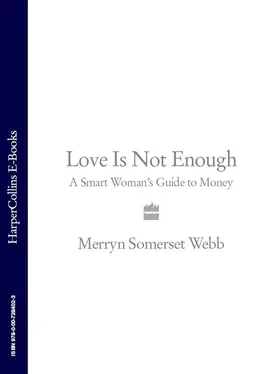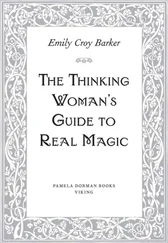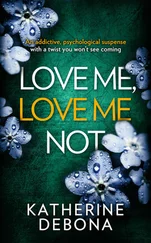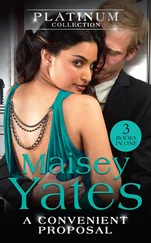Love Is
Not
Enough
The Smart Woman’s Guide to Making
(and Keeping) Money

Dedication Dedication Introduction Section 1: Finding the Money 1 Maximizing Your Income 2 Spend Less, Have More 3 Debt Section 2: Using the Money 4 Saving 5 Investing 6 Pensions 7 Buying a House 8 Marriage 9 Children 10 Divorce Section 4: Beyond the Money 11 Money 53 Money-Saving Tips The Final Checklist Useful Websites Index About the Author Copyright About the Publisher
Love Is Not Enough is in large part the result of hundreds of conversations with women about their finances. My thanks to all those women for their openess. In particular I’d like to thank my sisters, mother and grandmother all of whom spent a great deal more time than I know they would have liked talking to me about their money and their happiness. Other vital contributions came from Gillian Tett, Riko Sakurai, James Ferguson, Tim Somerset Webb, Ashe Peacock, Caroline Bennett, Katy Light, Gabrielle Jourdan, Caroline Law, Heather McGregor, Naomi Caine, Suzette Field, Pheobe Crawsahw, Charlotte de Panafieu, Verity Williams and most often of all from my husband Sandy Cross. I’d also like to thank Nick Reid, Euan Stuart and Craig Davidson for checking for mistakes (although any that remain are of course still my responsibility).
Title Page Love Is Not Enough The Smart Woman’s Guide to Making (and Keeping) Money
Dedication Dedication Dedication Introduction Section 1: Finding the Money 1 Maximizing Your Income 2 Spend Less, Have More 3 Debt Section 2: Using the Money 4 Saving 5 Investing 6 Pensions 7 Buying a House 8 Marriage 9 Children 10 Divorce Section 4: Beyond the Money 11 Money 53 Money-Saving Tips The Final Checklist Useful Websites Index About the Author Copyright About the Publisher Love Is Not Enough is in large part the result of hundreds of conversations with women about their finances. My thanks to all those women for their openess. In particular I’d like to thank my sisters, mother and grandmother all of whom spent a great deal more time than I know they would have liked talking to me about their money and their happiness. Other vital contributions came from Gillian Tett, Riko Sakurai, James Ferguson, Tim Somerset Webb, Ashe Peacock, Caroline Bennett, Katy Light, Gabrielle Jourdan, Caroline Law, Heather McGregor, Naomi Caine, Suzette Field, Pheobe Crawsahw, Charlotte de Panafieu, Verity Williams and most often of all from my husband Sandy Cross. I’d also like to thank Nick Reid, Euan Stuart and Craig Davidson for checking for mistakes (although any that remain are of course still my responsibility).
Introduction
Section 1: Finding the Money
1 Maximizing Your Income
2 Spend Less, Have More
3 Debt
Section 2: Using the Money
4 Saving
5 Investing
6 Pensions
7 Buying a House
8 Marriage
9 Children
10 Divorce
Section 4: Beyond the Money
11 Money
53 Money-Saving Tips
The Final Checklist
Useful Websites
Index
About the Author
Copyright
About the Publisher
For most of my twenties, when I thought about my future, I imagined all sorts of delightful things. Country houses and sunshine, long weekends by the Italian lakes, Christmas in the Caribbean, happy children riding brand-new bicycles, lazy mornings drinking coffee in cafés and sparkling-glassed conservatories, a wardrobe full of high-heeled shoes and cashmere jerseys, sports cars and speedboats. But the one thing I never thought about was the path from my current life to this new one.
How was this splendid future lifestyle to be financed? Would I inherit a few million from a distant relative? Win the lottery? Suddenly see my good career change to a great one as I started and quickly sold a fabulous small business or was promoted so far so fast that my salary and million-pound bonuses would take care of it? Or was I perhaps hoping for another kind of facilitator of the future? I think that a part of me – despite a strongly feminist upbringing – couldn’t help but assume that my fantasies would be paid for by someone else. By my very own Prince Charming. My truth is that deep down, despite love of my own career and pride in my financial independence, I long thought of the day when I would meet the man I intended to stay with for ever, the one who would be the father of my children, as the day most of my problems would end. Not only would my emotional burdens be shared but I would no longer have to worry about pensions, the housing ladder, savings, the stock market, bills and the like. I’d keep working and earning of course, but my Prince Charming would take all those boring things off my plate and chuck in a shopping allowance as a bonus. Yes, as far as I was concerned money was a man thing.
So I didn’t really worry about it that much. I made good money and did the bare minimum to look after it – I tried to keep out of debt, made sure I saved a little money and got the cheapest mortgage I could find when I bought my flat – but long-term planning? None. In my twenties I earned a generous salary at an investment bank. But when I resigned at 29 I had almost nothing to show for it (except for many, many pairs of shoes, long-term sleep deprivation and a heroic tolerance for alcohol). While I was working I wasn’t leveraging my earnings into long-term financial independence. I was effectively starting my financial life from scratch each month. Sound familiar?
Prince Charming isn’t coming
I’m not alone in having spent much of my adult life hoping for, worse, planning for, a let-out clause. A survey of all my (many) sisters and my friends, independent career women every one, shows that almost all of them, loath as they are to admit it, feel the same. They all know how they’re paying for their next holiday but very few of them have any idea how their retirement might be financed. Why? Because they assume that they won’t be financing it themselves. Someone else will. A recent survey by National Savings and Investments showed that 45% of women say that a healthy bank balance is their top priority when looking for a partner. Only 22% of men said the same. The women also said that a man didn’t become desirable until he was earning £50,000; they expected men to have hefty stashes of cash for them to spend – they assumed that potential partners would have an average of £24,000 in savings. The men surveyed expected partners to have only around £15,000 saved up.
There is nothing wrong with hoping for a financial let-out clause, be it a lottery win or a rich husband (neither are intrinsically bad things, in fact they are both rather good things). The problem comes when we put too much faith – consciously or subconsciously – in the idea that our financial futures will be sorted out by this kind of external force. Because the odds are they won’t be.
Let’s look at the lottery. Imagine a huge room filled to the top with 10,000 books. In one book, on one page, inside one O in the middle of a sentence somewhere, is a tiny dot. You have a pin. You must choose a random book. Then you must close your eyes, open the book and stick the pin in it. It is about as likely that you will hit the dot as it is that you will win the lottery in any one week. Indeed the odds of you winning the lottery are so low that they are pretty much the same whether you buy a ticket or not. That’s not really something to depend on.
Читать дальше












